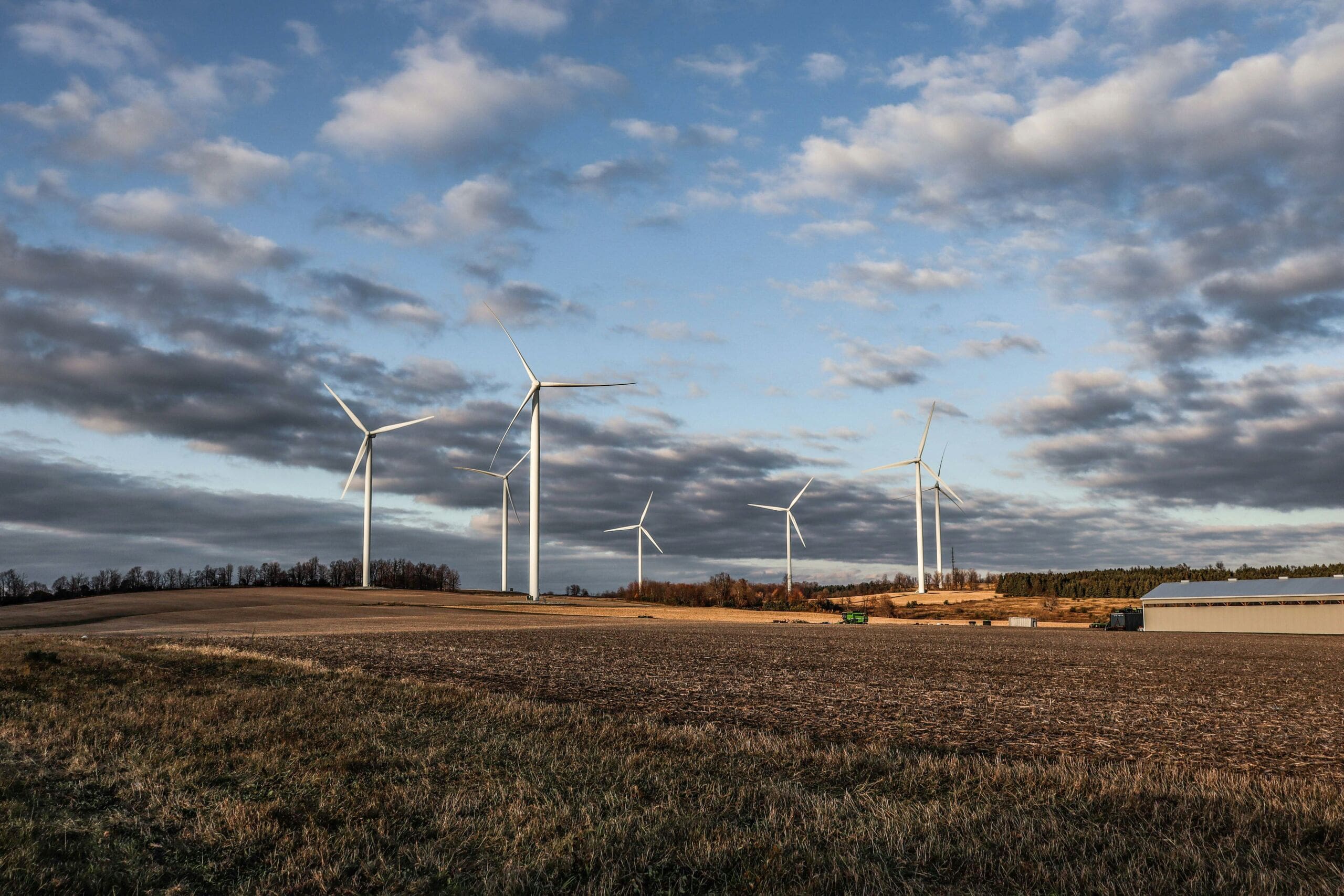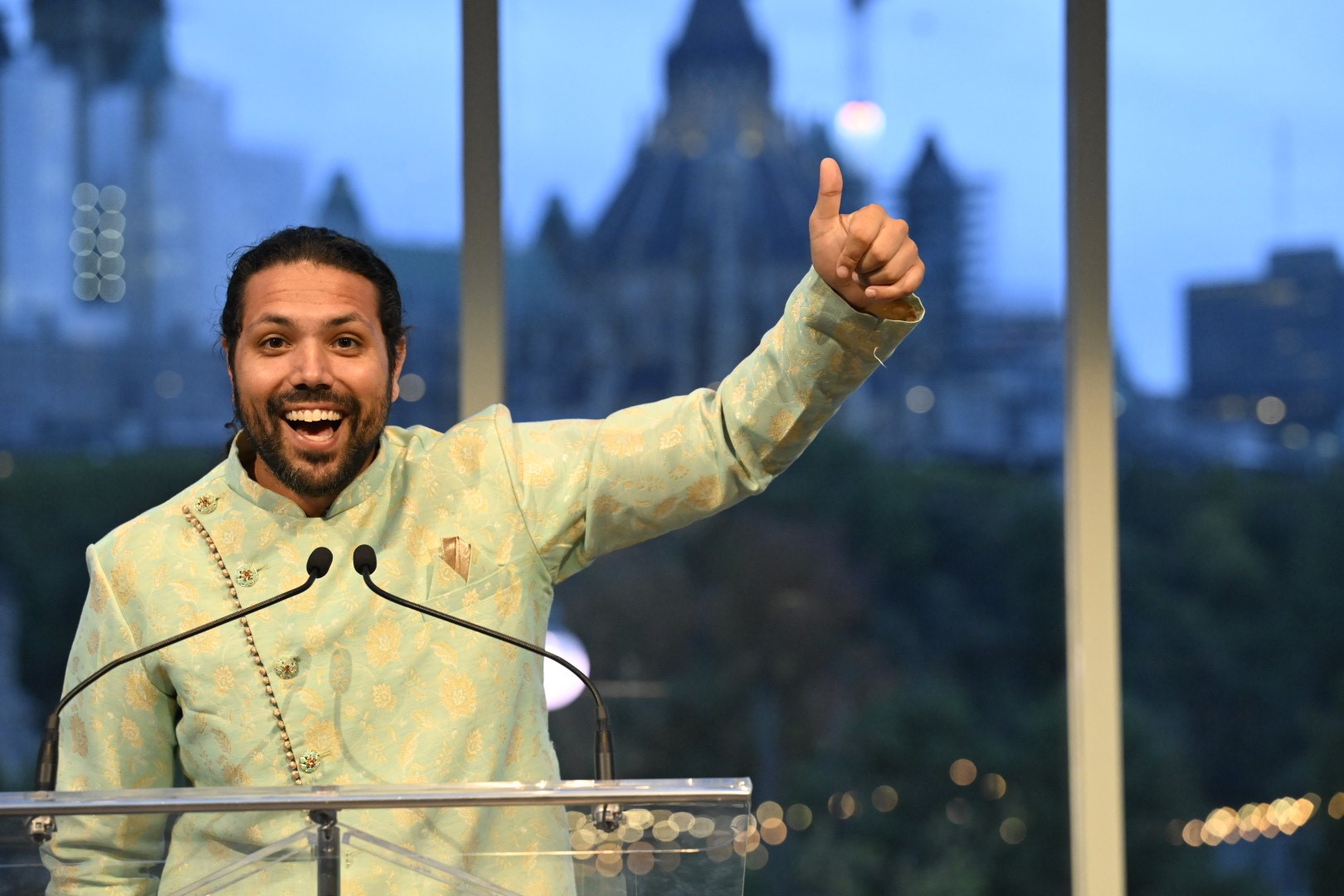Three years in, philanthropy’s climate pledge in Canada falling short despite bright spots
Why It Matters
Climate change poses an existential threat to life on Earth. Yet environmental charities in Canada get just two per cent of foundation funds. Has a voluntary climate pledge helped increase support?

A voluntary pledge led by the country’s top philanthropic associations to spur Canadian foundations to increase their climate action has supported some members in meaningfully advancing their environmental efforts, but three years after launch, it has fallen short of its signatory goal.
On Oct. 7, 2021, the four associations—Philanthropic Foundations Canada, Community Foundations of Canada, Environment Funders Canada and The Circle on Philanthropy—jointly launched the Canadian Philanthropy Commitment on Climate Change.
The purpose of the pledge, the Canadian version of an international initiative, was to provide funders with a pathway for environmental action across all aspects of their work—operations, grantmaking, investing, and advocacy.
It also aimed to increase the number of foundations focusing on the environment.
One year after launch, 96 per cent of surveyed signatories said the pledge significantly impacted their climate awareness and action, according to an initiative report.
The year after signing the pledge, many signatories also reported engaging in climate-related education, granting to environmental groups, and using positive and negative screens with a climate lens to assess their investment portfolio.
However, the initiative has also faced some hurdles.
At launch, the four partners set a goal of 100 signatories by June 2022. However, just 56 funders have signed the pledge so far.
“It’s quality over quantity,” said André Pawan Vashist, Philanthropic Foundations Canada’s director of learning and collaboration.
“You can sign up a whole bunch of people, but if you don’t engage the group you started with, those are just numbers.”
65 per cent of signatories report pledge progress
The pledge appears successful in its chief goal of spurring additional climate action.
In the year after signing the commitment, 65 per cent of surveyed signatories reported “reasonable to excellent” progress on pledge-related activities, according to an initiative report.
Among the 30 responding pledge signatories, nearly two-thirds (66 per cent) said they had provided their board of directors with resources and learning opportunities related to the climate crisis.
According to the report, the Peter Gilgan Foundation, a Toronto-based family foundation signatory, launched a climate change working group to educate family, board members, and staff about climate change.
Since signing the pledge, some foundations have also reported increasing grant funding to support the environment.
According to the report, B.C.’s Comox Valley Community Foundation increased its environmentally focused granting by $42,000 from 2022 to 2023—from $10,000 to $52,000.

Wendy Rinella, CEO of the Oakville Community Foundation, an Ontario-based pledge signatory, said the pledge’s best aspect was that it offered structure for the foundation’s climate efforts.
Before signing the pledge in 2021, they had begun advancing their sustainability and Indigenous reconciliation efforts, but in a “roundabout way.”
After joining, the foundation engaged with the pledge’s detailed seven-pillar implementation guide and participated in the initiative’s monthly learning calls, during which signatories shared stories of progress.
These resources enabled the foundations to move faster.
Since signing, they’ve welcomed a local climate leader to their board, supported a tree-planting initiative in partnership with First Nations treaty partners, and conducted research with a local college on how climate change will impact Oakville.
Like others, the foundation has also changed its operational practices, including offering staff a financial incentive to take transit rather than drive, Rinella said.
Pledge drives ‘unprecedented’ global collaboration
Beyond domestic progress, the pledge initiative has also supported foundation associations to collaborate in new ways.
Since its launch in 2019 by a group of foundations in the U.K., the climate pledge has expanded to include philanthropic network partners in eight countries.
In addition to Canada, climate commitments are underway in Brazil, France, Italy, Poland, and Spain, with more than 800 foundation pledge signatories worldwide.
This collaboration amongst philanthropic networks worldwide is “unprecedented,” said Erika Miller, head of climate with WINGS, a global charitable network supporting the initiative.
Beyond its utility for helping to drive climate action, Miller said the relationships created through this project could also be beneficially leveraged for future efforts.
Canadian initiative ‘paused,’ lost momentum
Yet the climate change commitment hasn’t been entirely easy sailing.
In its second year, the Canadian pledge effort suffered from a loss of momentum after a turnover in staff at PFC, the organization tasked with its coordination.
For five months beginning in November 2023, organizing efforts were paused while the coordinating team regrouped and reflected on whether the initiative was providing maximum value for existing signatories, said Pawan Vashist.
In resuming activities, the initiative is aiming to add more signatories, yes, but not at the expense of quality for existing members, he said.
In addition to not meeting its signatory goal, the initiative has not delivered as hoped on its goal of encouraging many foundations without previous climate focus to take action.
In the year one report, 70 per cent of signatories said the climate was their primary funding focus, suggesting that most participating organizations were already active on climate change before committing to the pledge.
The initiative has also been unable to demonstrate a significant boost in funding climate change-related initiatives among members.
Among pledge signatories surveyed in 2023, 30 per cent said they were not funding any organizations focused on climate change as their priority issue.
Additionally, more than half of signatory grantmakers who responded to the survey said they do not fund Indigenous-led initiatives.
What might be holding signatories back?
About a third of signatory organizations said their progress has been hampered by a lack of staffing capacity to implement the pledge.
Twenty per cent said they faced difficulty getting buy-in from key stakeholders, according to the PFC report.
Climate movement at a ‘crossroads’
Sara Adams, executive director of the Climate Justice Organizing Hub, said the efforts made so far by the pledge signatories and organizers are positive but cautioned that the scale of funding directed toward the climate is a fraction of what’s needed to meet the scale of the crisis.
Spurred by the burning of fossil fuels, Canada is warming at double the rate as the rest of the world, leading to more extreme weather and the risk of water supply shortages.
Yet, climate-focused organizations received just two per cent of foundation funds in 2021, according to an Environment Funders Canada report.

“We’re being really cutesy with our projects and stuff, but we’re entering into a period of destruction and despair,” said Jess Bolduc, executive director of 4Rs Youth Movement and an advisor to The Circle on Philanthropy on the pledge.
“I think we’re in denial about it,” she said.
Bolduc applauded the work of project partners and signatories on the climate pledge but stressed the need to accelerate progress, particularly regarding funding for Indigenous-led initiatives.
Indigenous communities have been disproportionately impacted by climate change already, she said.
“Are we doing feel-good projects? [Or] are we actually doing work that’s going to be providing the necessary building blocks for, what some folks are calling, ‘extinction-level’ events.”
Moving forward: With carrots and sticks?
Work on the climate pledge at an international level continues, with the addition this year of a new Arab regional commitment partner, said Miller.
Domestically, the climate pledge program is continuing to grow.
This year, PFC aims to add a new mentorship program, enabling signatories further along in their climate journey to support their peers, said Pawan Vashist.
Initiative partners are also aiming to provide tailored resources to support organizations on specific aspects of the pledge, such as impact investing or operations, he added.
In addition to these carrots, Bolduc wondered whether there should also be sticks.
“What if there was a penalty for not reaching your climate goals within a couple of years?” she said.
Bolduc suggested laggards could be forced to pay $5,000 into a fund to support Indigenous land defence work—people on the front lines of the climate change fight who are often criminalized.
What if we look at disincentives for stalling on action in addition to incentives for making progress, she asked.
